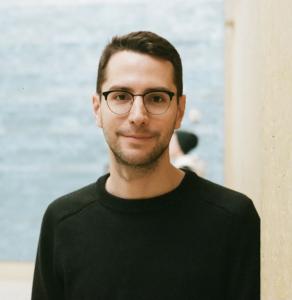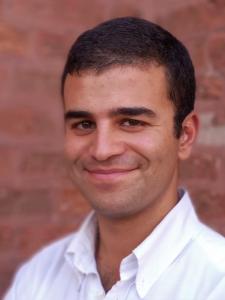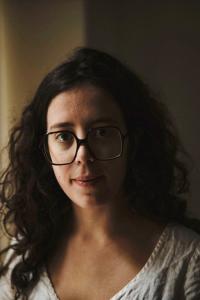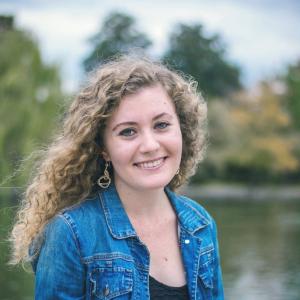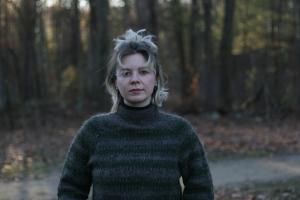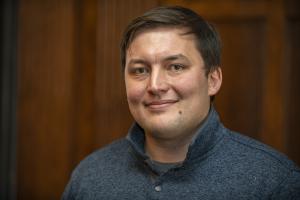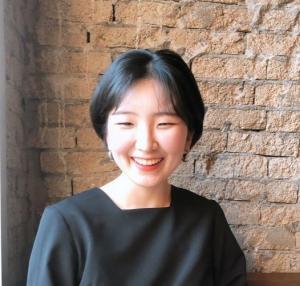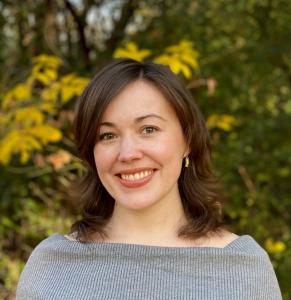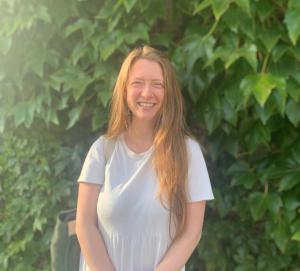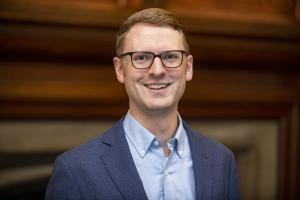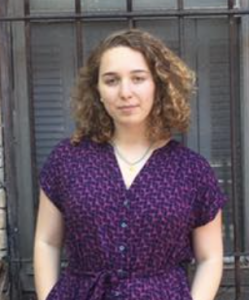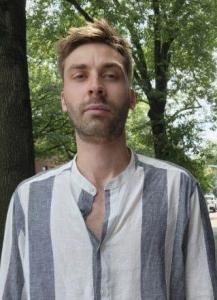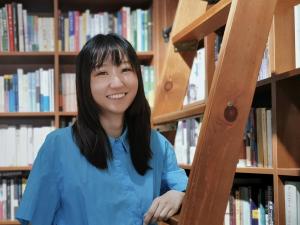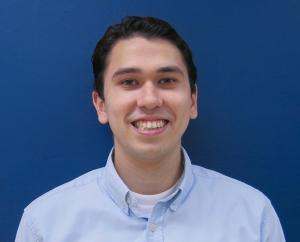2024-25 Lloyd and Susanne Rudolph Field Research Grant Fellows
CISSR is pleased to announce the 2024-25 Lloyd & Susanne Rudolph Field Research Fellows. These sixteen students and their projects continue the legacy of field work research pioneered by Lloyd and Susanne Rudolph, exemplifying the variety of geographic, disciplinary, and methodological strengths from across the Social Sciences Division.
Their projects examine a wide range of topics, including the World Health Organization's contribution to contraceptive knowledge production through collaboration with national authorities; identifying barriers to school access for migrant children in Mexico; how anti-establishment attitudes and protest behavior is driven by perceptions of generalized government underperformance; the coordination of ecological, infrastructural, and labor rhythms with financial pressures in the oil industry; the social history of industrialization and urbanization in mid-twentieth century Mexico; among others.
These awards cover expenses associated with original fieldwork, archival research, and more, deepening understanding and improving research. CISSR is proud to support the future of social scientific research at the University of Chicago and beyond.
We invite you to read more about the field research fellows and their projects:
Henry Bacha (Anthropology)
"Resettled Landscapes: Mitmaqkuna, Reducción, and the Negotiation of Empire in the Pampas River Valley (Ayacucho, Peru), A.D. 1400-1750"
This project investigates, utilizing historical and archaeological methods, the accumulative legacies of successive Inka and Spanish imperial programs of population movement and resettlement in the greater Pampas River basin (central Ayacucho, Peru). Historical sources dating to the mid-sixteenth century describe this region as being almost entirely inhabited by the descendants of mitmaqkuna, populations resettled from different Andean regions as a tool of imperial statecraft following Inka incorporation. Recent research indicates that this region of the colonial Viceroyalty of Peru also constituted a heartland of the resettlement program pursued by Viceroy Francisco de Toledo beginning in the 1570s, featuring one of the greatest concentrations of newly established reducciones in the Andes. Adopting a “transconquest” historical perspective, this project interrogates the affective and material influences exerted by prior histories of Inka resettlement over the formation of early colonial society in the Andes. Examining the long-term historical legacies of Inka and Spanish colonial programs of population resettlement, and centering the political stakes of settlement patterns, mobility, and practices of land use in the Pampas River basin, this project ultimately proposes to explore how history and social memory, embedded within Andean landscapes, converged to constitute the terrain of political contestation in colonial Peru.
Lautaro Cella (Political Science)
"The Emergence of Anti-Establishment Attitudes and Protest Behavior. Theory and Evidence from Argentina and Chile"
Disenchantment with political parties has become a global phenomenon. In the last five years, Argentina and Chile have witnessed an unexpected surge in anti-establishment views, protests, and votes for outsider candidates. What explains anti-establishment views and protest behavior among citizens? Much of the literature claims that the leading cause for the decline of partisanship and the success of outsiders is the policy convergence of mainstream political parties. Others point to poor incumbent performance. However, I contend that existing explanations do not tell the whole story. I argue that anti-establishment attitudes and protest behavior are predominantly driven by perceptions of generalized government underperformance in the form of repeated disappointing economic performance and corruption. When confronted with multiple political alternatives that have previously been in power and performed poorly, voters will increase their anti-establishment views and express their discontent through different methods: participating in street demonstrations, casting an invalid ballot, and supporting outsiders. An isolated economic crisis or corruption scandal is not enough for these outcomes to expand. Government underperformance must be repeated so that incumbent and non-incumbent established parties in the system become connected with it. I test my hypotheses by conducting original survey experiments in Argentina and Chile.
Miguel Fernandes (History)
"Diagramming Hands: Cognition, Computation, and Cross-Modality in the Middle Ages"
Diagrams have shaped the creation and circulation of knowledge for centuries, using space, color, and even the human body. Particularly in medieval times, diagrams often engaged not just the eyes but also the hands through touch and gesture. However, whereas the visuality of diagrams is a well-mapped field, the crucial role of the human body within diagrammatic cognition remains overlooked. Indeed, the sensory and motor systems of the body have a profound influence on our perception, memory, and thinking. My project addresses this question by situating medieval diagrams at the crossroads of visual, verbal, tactile, and kinesthetic senses. I argue that diagrams were dynamic, embodied, and multisensory interfaces, that enhanced memory and facilitated sophisticated thinking and problem-solving. By integrating history, cognitive science, computation, and art history, my research spotlights understudied sources like finger-counting diagrams and the Aristotelian pons asinorum, giving special consideration to educational environments such as monastic schools and universities. While my primary focus is on Latin Europe during the High Middle Ages (ca. 1050 – 1350), I also explore broader contexts, including Arabic, Greek, early medieval, and early modern source materials. Ultimately, this project aims to contribute to discussions on embodied cognition and premodern visual and material cultures.
Carol Iglesias Otero (Anthropology)
"Oil out of Joint: Handling Time, Work, and Weather in Mexico’s Sureste Petrolero"
The oil industry on Mexico’s southeastern coast has developed atop a turbulent ecology: the Tabasco plains contain thirty percent of Mexico’s surface waters, its shoreline is undergoing severe erosion, while its ports and offshore platforms are exposed to hazardous weather year-round. Oil extraction depends on the constant flux of workers, petroleum, and provisions across a volatile ecology, a flux that requires monitoring weather and sea conditions and their impacts on the maintenance of this industrial timescape. My project explores how workers in Mexico’s oil industry struggle to coordinate ecological, infrastructural, and labor rhythms in the face of financial pressure to maintain a steady pace of production. I pay attention to the everyday work practices of three occupational groups: 1) platforms workers tasked with maintaining an uninterrupted, steady rhythm of oil extraction; 2) logistics workers and meteorologists managing mid-level temporal scales in Pemex’s logistics center; and 3) scientists involved in long-term modelling at Mexico’s Petroleum Institute. How do workers perceive the relation between their work, the ecological space in which it develops, and the financial embroilments of Pemex? Through what concepts, affects, and “temporal dispositions” do workers make sense of Pemex’s and their own exposure to accidents, losses, and interruptions?
Claire Jones (History)
"Inter-Imperial Trade and the Formation of an Anglo-Iberian Atlantic, 1660-1720"
My dissertation examines early modern British commercial encroachment on Spain and Portugal’s Atlantic empires. Between 1660 and 1720, a variety of actors—merchants, artisans, consuls, diplomats, and officials—became increasingly preoccupied with the negotiation, implementation, and maintenance (or subversion) of legal privileges that allowed British merchants to practice a kind of informal empire in the Atlantic world and limited the ability of the Spanish and Portuguese Crowns to manage their imperial economies. As successive generations of British traders abroad called upon their home government for protection in their interactions with foreign authorities, securing more and better formal rights to trade in the Portuguese and particularly in the Spanish empire became—in addition to a major political objective—a key issue in Britain’s public politics in the early eighteenth century. In contrast to studies that center illicit or intra-imperial trade regimes, I argue that legal inter-imperial trade is crucial to understanding the political and commercial dynamics of the early modern Atlantic world. In particular, it allowed for the formation of an entangled Anglo-Iberian Atlantic in which British merchants and policymakers depended on their ability to formally extract trans-imperial access from their Spanish and Portuguese counterparts.
Juliet Kelso (Comparative Human Development)
"Welcome Home? Race, Representation, and Migrant Housing in Berlin"
This research project aims to compare the ways that asylum seekers and refugees from Ukraine, Syria, and Afghanistan are differently “welcomed” in Germany, paying attention to racial, religious, and geopolitical distinctions that shape and are shaped by law and policy. It will examine differences in representations and attitudes toward asylum seekers and refugees facing forced displacement to Germany in the contexts of housing assignment and opportunities for non-formal political participation via migrant advisory councils. Through qualitative research, including observations at housing sites and district-level migrant advisory councils, as well as semi-structured interviews, the project aims to understand the roles, expectations, and values of various stakeholders, including city officials, council members, community members, and residents. It will identify gaps in understanding and communication about migration and housing policies between policymakers and those whose experiences they impact. This preliminary research will lay the groundwork for a dissertation project on the racial and ethnic disparities in the social and political representation and participation of asylum seekers and refugees in Germany, as embedded both in formalized integration and housing policies and local level interactions.
Alexander Koenig (Comparative Human Development)
"Access or Exclusion? Administrative Barriers to School Enrollment for Migrant Children in Mexico"
This project is a follow-up on field work conducted in Mexico City in the summer of 2023 and is part of my dissertation research. The funds will be used to conduct site visits to schools and interviews with school and community leaders in four cities in Mexico at the start of the 2024-25 school year. It will involve 1-2 weeks each in four cities – Mexico City, Puebla, Chihuahua, and Ciudad Juarez. My research is focused on identifying barriers to school access for migrant children in Mexico and is being done in collaboration with scholars at El Colegio Mexico (COLMEX) in Mexico City. The support of the CISSR Rudolph Field Research Award allows me to make in-person visits to my four research sites and collect baseline data for the start of the upcoming school year. Of primary interest to the study is the extent to which Mexican public schools have become accessible to migrant children and families following legislation in 2015 that guaranteed free education regardless of migration status.
So Yoon Lee (Sociology)
"K-pop as a Vocation: Vocational Training, Cultural Production, and Urban Centrism in South Korea’s Popular Music Industry"
Recently, K-pop has experienced an unprecedented level of ascendancy within a Western-centric global culture. This phenomenon requires reconceptualization following the institutionalization of vocational training and intensifying urban-centrism in Korea’s entertainment sector. Against this backdrop, this project explores 1) how individuals pursue different K-pop industry careers and 2) how this process is embedded in larger social structures and ecologies of cultural production and consumption. To better understand how and why K-pop became a vocation for many Korean youth, I will use several qualitative research methods. I plan to conduct participant observations and in-depth interviews with students, instructors, and staff at six vocational institutions based in Seoul that provide vocational training for K-pop industry careers. Upon gaining consent from student interviewees, I will longitudinally trace their career paths by conducting multiple interviews over time. To further understand the K-pop industry’s labor demands and preferred qualifications, I will also conduct rhetorical analysis of the vocational institutions’ marketing materials, K-pop industry job ads, and K-pop label audition ads. Through these analyses, this project strives to address the lack of attention to work, labor, and gender in cultural industries within American sociology, simultaneously “globalizing” sociology of culture by ethnographically examining a non-Western cultural form.
Megan MacGregor (Anthropology)
"Modern Microbiomes: Dysbiosis, Health, and Therapeutics in Global Microbiome Science"
Genomic methods of understanding microbes as ecosystems have generated the concept of the microbiome, a term that typically refers to the combined microorganisms within a given environment—often the human body. Increasingly, microbiome scientists argue that out-of-balance, or “dysbiotic,” microbial ecosystems result in a range of metabolic, developmental, and immune disorders associated with “Westernization” or “industrialization.” These arguments posit that modern life—including processed and low-fiber diets, more time indoors, and antibiotics—threaten biodiversity not only in external environments, but also the microbial environments within people’s bodies, and that this reduced microbial biodiversity affects human health. Using mixed ethnographic methods, my study examines how scientists in the United States and Mexico understand, map, and diagnose healthy and unhealthy microbiomes, asking how they locate and narrate modernity and industrialization in human bodies. As transnational and globally-oriented scientific research increasingly defines microbiome science among other scientific disciplines, it is crucial to understand the transnational processes through which scientific knowledge circulates. By engaging ethnographically with the scientific idea of “dysbiosis” in multiple perspectives, this study will shed light on how ideas about race, nation, and global power dynamics inform understandings of industrialization, modernity, and the relationships between unstable modern environments and human health.
Ksenia Podvoiskaia (History)
"Inventing the Modern Schoolteacher: Teacher Training in the Early Nineteenth Century British Empire"
Why did the British state assume responsibility for teacher training in Victorian Britain? My research examines nascent state interest in education policy in the first half of the 19th century and the emergence of the professionalized, modern schoolteacher. The shift from disparate and independent village schoolmasters to teaching networks with centralized training institutions has been neglected in historical scholarship. This is partly because it began a half-century before Britain’s major education act of 1870, and partly because reform was led initially by religiously motivated organizations rather than the state. I study the intellectual and institutional histories of these reforms, which focused on teachers as capable of transforming their students whether at home or abroad into ideal imperial subjects. Training colleges made teachers the first experiments in this pedagogical transformation. Moving between Ireland, the West Indies, and England, teacher training offers a window into the relationship between non-state actors, marginalized imperial populations, and eventually, the state. Reform and state involvement was mediated by political imperial objectives and differentiated along racial, class, and religious lines. The emergence of modern teaching in Britain occurred on a global scale, developing in colonial locales as much as in England itself. My archival research is grounded in the records of reformers and institutions mainly in Belfast, Dublin, London, and Edinburgh. Though they are centuries old debates, furor over what teachers are allowed to say in their classrooms, how public education shapes its young citizens, and who’s responsibility it is to impart education remain urgent concerns today.
Katharine Reed (History)
"Desequilibrios y Desigualdades: Development, Work, and Family in Twentieth-Century Mexico"
Mexico's mid-twentieth century has often been described as a "miracle": rapid economic growth; industrialization and urbanization, with all of their attendant infrastructural and environmental transformations; the consolidation of mass--albeit undemocratic--politics under the umbrella of the PRI. On paper, and incrementally in practice, there was a dramatic expansion of social and economic entitlements, including a massive program of agrarian reform, a bevy of labor rights (at least for formal sector workers), and healthcare and education systems. These transformations have often been collectively shorthanded as "development," even as Mexico remains one of the most unequal countries in the hemisphere. Yet surprisingly few social historical accounts of this process, and what it entailed for the people whose lives and labor quite literally constituted development, exist. What did "development" mean for those who lived it, contested it, desired it, made it? This project seeks to answer this question by addressing three interlinked processes--development, work, and family--from the heyday of developmentalism in the 1930s and 1940s to its unraveling during the 1980s. Holding work and family, production and reproduction, together is a central analytical ambition of the project, not least because many of the most desired and demanded aspects of "development"--healthcare, schooling, housing--were intimately linked to, even constituted by, women's labor. Centered on Coatzacoalcos, a major port, railroad hub, and oil city located in an important agricultural zone, the study will draw on public and company archives, and hopefully oral histories, to shed light on the paradoxes and profound inequalities of Mexican development.
Adam Saxton (Political Science)
"Classifying Conflicts: Legal Labels and the Use of Military Force"
Why do states legally frame events in ways that sharply contrast with material facts on the ground? The practice of mislabeling conflicts has persisted for centuries, from the United States’ “police action” in Korea in 1950 to the Quasi-War between the United States and France in 1798. Russia’s recent “special military operation” in Ukraine is only the latest example of this behavior. This dissertation explores the phenomenon of conflict mislabeling, investigating why states choose legal terms that often diverge from the true nature of the conflict. The project sheds light on this strategic manipulation by developing a typology of label types to encompass a range of labels and their relationship to the underlying conflict. The study proposes an initial theory of label choice based on concern over conflict escalation and manipulation of the laws of war. This theory and typology are demonstrated through archival research in historical case studies drawn from the 19th and 20th centuries to assess why certain labels were chosen over others. By bridging gaps in the study of conflict, international law, and rhetoric, this research aims to reveal the complex interplay between the material realities of war and the legal frameworks used to define them.
Rachel Tils (History)
"Controlling the Antillean Internal Economy, 1763-1807"
My dissertation explores the entanglement of commercial regulation and the policing of enslaved people’s autonomous economic exchanges in the late-eighteenth-century Anglo-French Antilles. From the emergence of free ports in the 1760s through the abolition of French slavery and the British slave trade, officials experimented with entrepôts open to foreign trade and clashed over the role of free and unfree labor within imperial spaces. These realms of commerce existed alongside thriving internal economies in which enslaved people bought and sold subsistence crops and wares. While British and French administrators tinkered with the contours of licit global commerce, they simultaneously reconfigured regulations on enslaved people’s exchanges. Using Saint Domingue and Jamaica as case studies, I argue that bonded marketers, peddlers, contracted laborers, and witnesses to illicit commercial activities shaped and were shaped by the evolution of international free trade and abolition. This project thus decouples freedom and equality from the history of the commercial agent within the British and French empires. Ultimately, the concept of economic independence itself was wrought with unstable contradictions between bondage, freedom, surveillance, permissiveness, and dependence for both enslaved and free people across the Atlantic world.
David Westby (Political Science)
"Ultras and Populism"
The recent success of extremist populist politicians has prompted concern about democratic backsliding. Trump, Bolsonaro, Erdoğan, Le Pen, Bukele, and more have tapped into widespread frustrations with modern politics. These extremist populist politicians mobilized already robust yet invisible groups of people that were primed for an anti-system message. But how were they primed? Existing literature suggests citizens are dissatisfied with institutional politics in liberal democracies. But little scholarship has focused on where and how such grievances are shaped into populist sentiment. I argue that the priming for populist messaging has for years been happening outside of mainstream political spaces, for example in the punk music scene, online video game communities, and churches. I propose to study an undertheorized space to illustrate how communities with extremist ideologies are formed in alternative social contexts. Soccer has a unique form of fandom called ultraism in which young men are mobilized by organized fan groups. Activities include coordinated visual displays and chants, travel to away games, social gatherings, and fights. Critically, ultra groups imbricate intense fandom with radical politics, cultivating extreme populist attitudes in young men searching for a north star.
Ziyuan Yang (Sociology)
"Contraception and WHO: Global Research, Geopolitics, and Contraceptive Knowledge"
My project examines WHO’s involvement in contraceptives during the mid-to-late twentieth century from a historical sociology perspective. Dominant narratives about the global consensus on modern contraceptives paint a caricature of Western countries imposing a set agenda on low-income countries, but the reality is far more complex. Over the course of four decades, the WHO became a dominant authority on contraception through a series of successful and unsuccessful scientific, political, and economic collaborations with many entities across the globe. I focus on WHO’s contribution to contraceptive knowledge production through “collaborating with national authorities,” particularly the knowledge produced by developing countries. Through this project, I will theorize how international organizations, geopolitics, and global markets have shaped our understanding of contraceptives, and I aim to contribute to empirical debates about global health governance and population history. What makes this project truly global is that my approach emphasizes the national-international collaborations (especially with India, China, Turkey, and Egypt), highlighting their role as active contributors to contraceptive knowledge production, rather than simply recipients of health policies.
Roberto Young (Anthropology)
"Mayan Language Revitalization in Historical Perspective"
The Kaqchikel Mayan case is a theoretical puzzle. Its extensive corpus of documentary and descriptive material, alongside applied interventions, have not been accompanied by expanded use but rather language constriction. From the late 1980s to the early 2000s, the Maya movement in Guatemala was at its height. Central to this cultural revindication movement was language. This political mobilization produced major legislative advances. However, many have not been sustained. The purpose of this project is to intervene in this paradox of significant advances and perduring limitations by asking: what has been done and where do we go from here? As preliminary dissertation research, the goal is to conduct an original archival survey of the discourses and ideologies around Mayan languages during the height of the Maya movement. It is to contribute a historical and political analysis of Kaqchikel language revitalization to evaluate the formative history that gave rise to contemporary circumstances. In this UN-declared International Decade of Indigenous Languages (2022-2023), this archivally-grounded historical investigation presents an opportune movement to present the case of Mayan language revitalization as one whose lessons from advances and limitations can chart new pathways of scaling and sustaining language revitalization work across the globe.
 THE UNIVERSITY OF CHICAGO
THE UNIVERSITY OF CHICAGO



